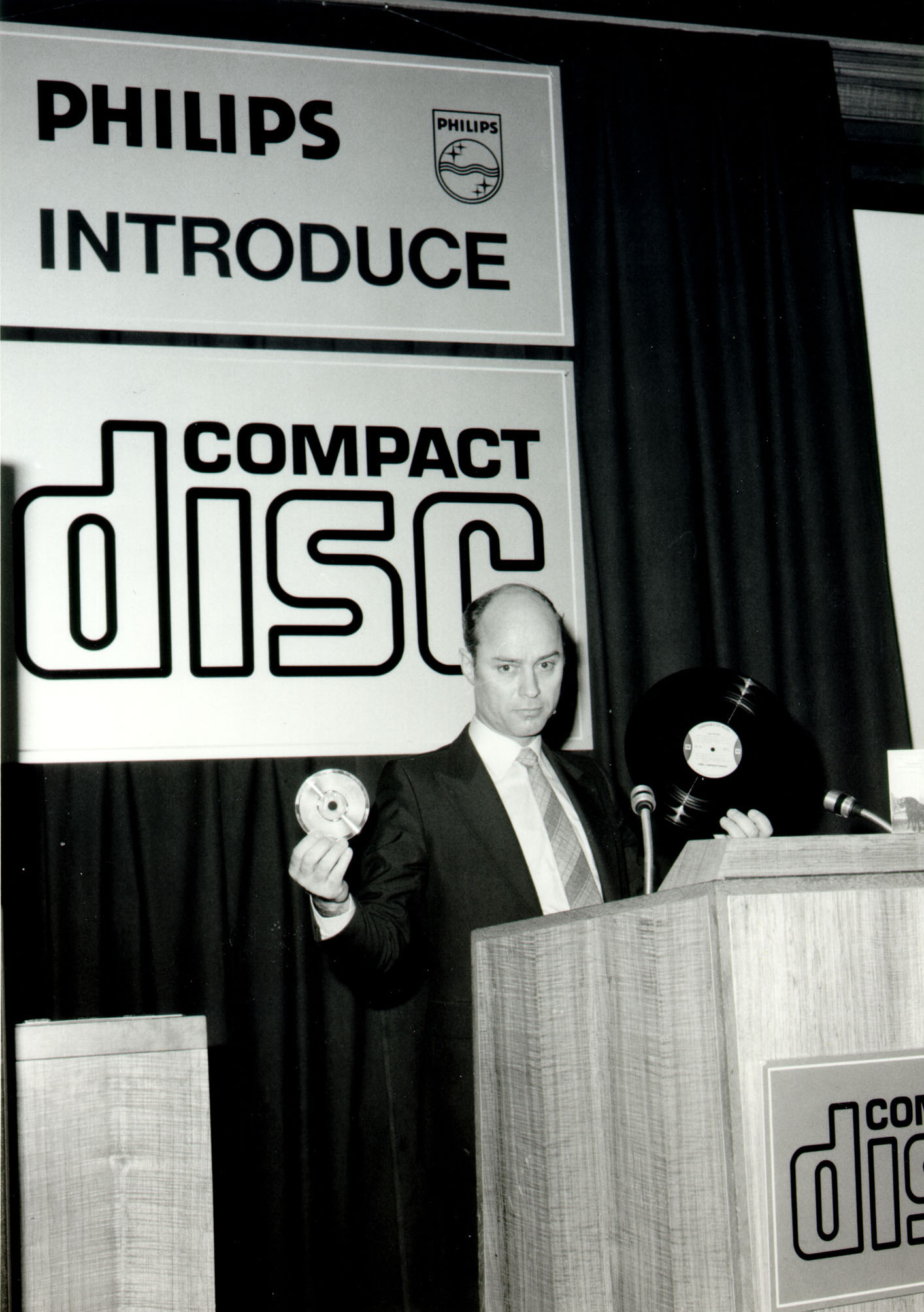It’s more than 40 years since research and development began on the Compact Disc, exactly 30 years since the technology’s amazing rise in popularity and more than a decade since the best market the recording industry ever enjoyed started to lose its groove. How did the biggest music companies in the world not see that the information would become pure? It’s the same old story: They didn’t want to accept it would happen because they didn’t want the huge profits to stop coming.
In “How the Compact Disc Lost Its Shine,” Dorian Lynskey of the Guardian has a smart, sprawling article about the brief dominance of a medium. Three excerpts follow.
_________________________
Bootleg CDs were a danger the industry could get its head around – you could hold one in your hand. What it couldn’t comprehend was the threat of the MP3: the idea that music could transcend physical formats. “That happened for two reasons,” says [How Music Got Free author Stephen] Witt. “One was they were enjoying unbelievable profits. Two, the studio engineers hated the way the MP3 sounded and refused to engage with it. A lot of artists hated the way it sounded, too.” What the audiophiles didn’t realise was that most consumers couldn’t tell the difference. “What was the audio experience before the compact disc?” says Witt. “It was cheap vinyl or an AM transistor radio on the beach, and MP3 sounds better than either of those.”
_________________________
Just like their predecessors in Greece in 1982, 90s executives were too busy worrying about the next quarter to consider the next decade. The status quo was perfect, until it wasn’t. “My biggest bugbear about this industry is that they all think short-term,” says Webster. “Nobody ever thinks long-term. All these executives were sitting there being paid huge bonuses on increased profits and they didn’t care. I don’t think anyone saw it coming. I remember the production guy at Virgin saying, ‘In a few years, you’re going to be able to carry all the music you want around on something the size of a credit card.’ And we all laughed. Don’t be ridiculous! How can you do that?”
_________________________
Only a handful of people predicted the CD’s downfall way back in 1982. German computer engineer Dieter Seitzer, the forefather of the MP3, immediately considered the CD “a maximalist repository of irrelevant information, most of which was ignored by the human ear,” writes Witt. If music could become digital data, he thought, it wouldn’t be bound by the Red Book. Webster remembers one industry Cassandra, Maurice Oberstein – who ran CBS and then Polygram in the UK – making a similar point. “He was the only one who went: ‘We’re making a huge mistake. We’re putting studio-quality masters into the hands of people.’ And he was absolutely right in that respect. Once you made a CD with ones and zeroes it was only a matter of time before that was converted into something that was easily transferable.”
The fall of the CD, like its rise, began slowly.•
Tags: Dorian Lynskey, Stephen Witt

